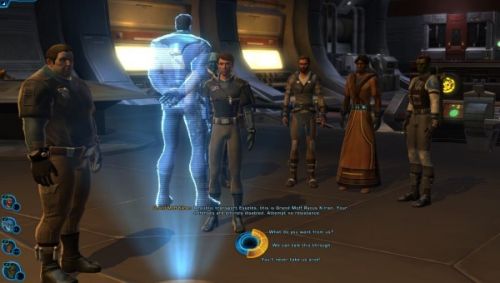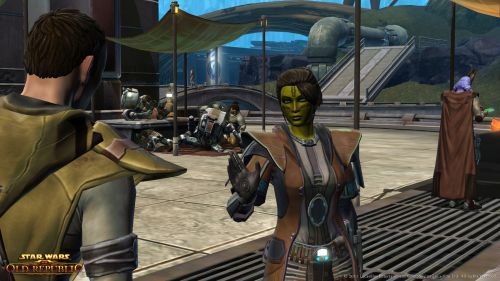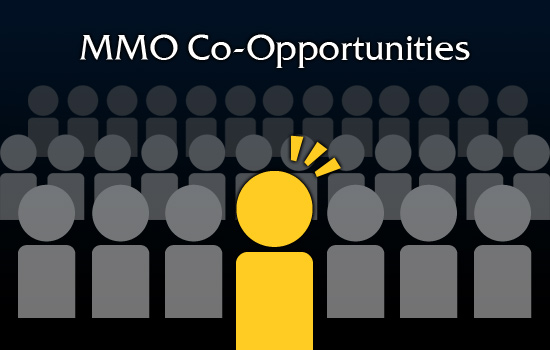Last month, I voiced some of my trepidations about the upcoming Bioware MMO. Now, a month later, I haven't been able to play the game for three days and I can hardly wait to get back to it. Something strange and wonderful has happened here, but what? If I were to put it succinctly, it would be like this: playing the Old Republic (henceforth TOR) is like playing a single-player Bioware game (like Knights of the Old Republic, Jade Empire, or Mass Effect) but with other people, and what on earth is there to not like about that? This is, of course, over-simplifying, but that's really the core of what has me so hooked. Let's break it down into a few specific co-opportunities: questing, group conversations, and social points.
All three of these co-opportunities are linked to each other, but let's start with the quests. Quests primarily come in three different versions: normal quests, heroic quests, and class quests. Normal quests can be done solo or in a group of up to four other party members. Heroic quests are designed for groups (they are marked with [HEROIC 2+] or [HEROIC 4+] tags to let you know that first, they're heroic quests, and second, how many group members are expected based on the difficulty). There are much less Heroic quests than normal quests, and if you choose you can skip them completely. They are also repeatable if you want to tackle them multiple times (they reset once a day) for rarer gear or tokens for a token-based equipment system where you can trade them in for nice gear that's about the same level as the questing area.

For both of these types of quests, each quest pick-up and turn-in has a unique, fully voice-acted cut-scene. Characters will be given chances to input their choice of conversation via the familiar conversation wheel. If a player is in a group and the other players are eligible for the conversation (e.g. they haven't completed the quest already), whenever they click a conversation option they're automatically roll a number. Once every has input their conversation choice, the highest roller will be the one who gets to speak their piece. Light and dark points are awarded according to which option each player chose, and not just based on who won the roll. As an added benefit, group conversations are the only way players can get social points and ranks.

Players are awarded social points for merely being in a group conversation when a party member speaks in a cut-scene (you get one social point per person in the party, so in a full group of 4, all players receive 4 social points when anyone speaks). They get double social points when they win the roll and they get to speak (so 8 points if they're in a full party and they win the roll). These social points go toward leveling up your social rank. At certain social ranks you'll get access to little vanity items (e.g. special customizable light armor, sparklers, or at rank 10 even a party ball that makes people around you dance!). They make no difference in the actual game play, but it's a fun little bonus to players who like doing things as groups. Another thing to note about conversations is that certain options may give you plus or minus affection with your companions (more on this later).
